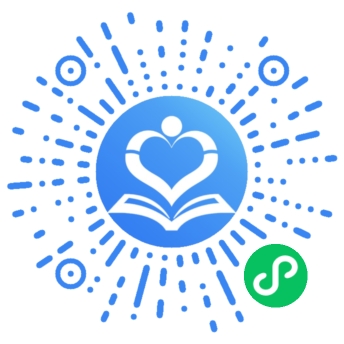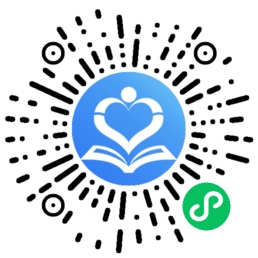中共党史专业介绍
中国共产党历史专业属于法学门类,政治学一级学科,该专业主要研究中国共产党的历史发展、理论政策与实践,探索中国共产党领导中国革命、建设、改革和党的建设的历史经验教训,揭示中国共产党执政规律、社会主义建设规律、人类社会发展规律。
英语单词分类 轻松记单词
used
英[juːst] 美[juːst]
"the principle of surprise is the most used and misused of all the principles of war"
"after going out of his way to help his friend get the job he felt not appreciated but used"
"bought a secondhand (or used) car"
情态用法及短语(MODAL USES AND PHRASES)
1.过去常常;过去曾
If somethingused to be done orused to be the case, it was done regularly in the past or was the case in the past.
e.g. Peopleused to come and visit him every day...
人们过去每天都来拜访他。
e.g. Heused to be one of the professors at the School of Education...
他曾是教育学院的一名教授。
2.过去不曾(亦作did not use to 或 did not used to,尤用于口语)
If somethingused not to be done orused not to be the case, it was not done in the past or was not the case in the past. The formsdid not use to anddid not used to are also found, especially in spoken English.
e.g. Borrowingused not to be recommended...
过去是不建议借贷的。
e.g. At some point kids start doing things they didn't use to do. They get more independent...
从某个时候起,孩子们开始做以前不曾做的事情。他们变得更加独立。
3.习惯于
If youare used to something, you are familiar with it because you have done it or experienced it many times before.
e.g. I'mused to having my sleep interrupted...
我习惯了睡觉时被吵醒。
e.g. It doesn't frighten them. They'reused to it.
这可吓不倒他们。他们已经习惯了。
4.开始习惯于
If youget used to something or someone, you become familiar with it or get to know them, so that you no longer feel that the thing or person is unusual or surprising.
e.g. This is how we do things here. You'll soon getused to it...
我们这里就是这么做事的。你很快就会习惯的。
e.g. He took some gettingused to...
他过了一段时间才慢慢适应。
形容词用法(ADJECTIVE USES)
1.用过的;不干净的;损坏的
Aused object is dirty or spoiled because it has been used, and usually needs to be thrown away or washed.
used是什么意思
e.g. ...aused cotton ball stained with makeup...
沾满化妆品的脏棉球
e.g. He took aused envelope bearing an Irish postmark.
他拿了一个盖着爱尔兰邮戳的旧信封。
2.(车)二手的,旧的
Aused car has already had one or more owners.
e.g. Would you buy aused car from this man?...
你会从这个人手里买一辆旧车吗?
e.g. His only big purchase has been aused Ford.
他买的唯一一个大件就是一辆二手福特。
1.
1. 用过了的:数据不应该是生产出来的(produced),精选出来的(picked),用过了的(used)数据便没有了意义. pick精选, 摘下;produce生产,制造;use使用;gather收集,搜集,整理. 在不远的将来,水供应的预报和水的使用将(will)很可能依赖的是人们对高山积雪的认识,
He makes sweaters from used plastic bottles.
他利用使用过的塑料瓶罐来制造毛衣。
I want to buy a used car at a cheap price.
我要以低廉价买一辆被使用过的车。
To save money, I purchased a used car instead of a new one.
为了省钱,我没买新车,而是买了辆二手的。
It's very different to what I'm used to.
这与我所习惯的大不相同。
He has his own peculiar style which you'll soon get used to.
他有自己独特的风格,你会很快习惯的。
I'm not used to eating so much at lunchtime.
我不习惯午饭吃那么多。
I found the job tiring at first but I soon got used to it.
起初我觉得这份工作很累人,但很快就习惯了。
used cars
二手汽车
I'm not used to eating so much at lunchtime.
我不习惯午饭吃那么多。
I found the job tiring at first but I soon got used to it.
起初我觉得这份工作很累人,但很快就习惯了。
used cars
二手汽车
People used to come and visit him every day...
人们过去每天都来拜访他。
He used to be one of the professors at the School of Education...
他曾是教育学院的一名教授。
Borrowing used not to be recommended...
过去是不建议借贷的。
At some point kids start doing things they didn't use to do. They get more independent...
从某个时候起,孩子们开始做以前不曾做的事情。他们变得更加独立。
I'm used to having my sleep interrupted...
我习惯了睡觉时被吵醒。
It doesn't frighten them. They're used to it.
这可吓不倒他们。他们已经习惯了。
This is how we do things here. You'll soon get used to it...
我们这里就是这么做事的。你很快就会习惯的。
He took some getting used to...
他过了一段时间才慢慢适应。
...a used cotton ball stained with makeup...
沾满化妆品的脏棉球
He took a used envelope bearing an Irish postmark.
他拿了一个盖着爱尔兰邮戳的旧信封。
Would you buy a used car from this man?...
你会从这个人手里买一辆旧车吗?
His only big purchase has been a used Ford.
他买的唯一一个大件就是一辆二手福特。
It used to be usual to bind out promising boys for many years.
过去,人们经常让有出息的男孩子拜师学艺好多年.
Vinegar is used in preserving food.
醋可用来保存食物.
In those remote mountains people used to farm by the slash and burn method.
那个偏僻山区,过去是刀耕火种.
The tools will corrode with rust if never used.
这些工具如长期不用会长铁锈而损坏.
The medicine is used to assuage pain.
这种药用来止痛.
They enjoyed exemption from customs duties on goods to be used by themselves.
他们的自用物品获得免除关税.
The police used dogs to track the criminal.
警察用警犬来追踪罪犯.
I used to have a companion to that ornament, but I broke it.
我原来还有一件装饰品和那一个配对, 可是我把它弄坏了.
搬家
A:I could never (getused to/ grow accustomed to) it, though.
可是我(无法习惯/不能习惯)。
B:It’s not too bad
还不是很糟糕。
overdose-(吸食过量)
A:Did you hear about John?
听说了汤姆的事情吗?
B:No. What happened?
没有,什么事?
A:He overdosed on heroin.
他服用海洛因过量。
B:Oh my god. Heused drugs?
哦,天。他吸毒?
A:I guess so. Supposedly, it was the first time he did heroin.
我想是。据称,这是他第一次吸食海洛因。
B:His poor family.
他的家人真可怜。
A:Yeah.
是呀。
介绍
used的翻译
A:Mary, this is Joe's brother David.
玛丽,这是乔的兄弟大卫。
B:I'm very glad to meet you.
我很高兴见到你。
C:It's a pleasure to meet you.
很高兴见到你。
B:How do you like Beijing so far?
到现在你觉得北京怎么样?
C:It's really different from what I expected.
与我想象的很不一样。
B:Don't worry. You'll getused to it in no time.
别担心。你很快就会习惯它了。
误 She was used to get up early.
正 She was used to getting up early.
析 be used to后可接动名词,不可接动词不定式。
报纸在我们这里是用来表达公众舆论的。误 Papers are used to expressing public opinion here.
正 Papers are used to express public opinion here.
析 在这里used是动词的被动结构,表示“被利用来做…”,因此,其后应接动词不定式。
Hoge's motherused to worry that he would face many difficulties in life.
霍格的母亲过去常常担心他在生活中会遇到很多困难。
2020吉林省卷
My father told me that thereused to be a forest near our town.
我父亲告诉我,我们镇附近曾经有一片森林。
2020陕西省卷
What did Li Shizhenuse to do when he was young?
李时珍年轻的时候曾做过什么?
2020锦州市卷
四川高考志愿填报方式:1、进入页面;2、修改密码;3、填报须知;4、查看个人基本信息;5、志愿类别选择;6、填写志愿和修改志愿;7、填写或修改志愿结束后,单击页面底部的[保存并提交]按钮,则所填写的志愿数据将得到保存,保存即表示该批次志愿已经提交。
高考成绩一般都会在考后15天左右公布,不过不同省份查询时间有所差别,具体以各省份发布时间为准。并且全国各省份高考成绩公布时间有所不同,不全在同一天,但绝大部分省市都集中在6月24日、6月25日两天公布高考成绩,有些省份会更早一点。
中国共产党历史专业属于法学门类,政治学一级学科,该专业主要研究中国共产党的历史发展、理论政策与实践,探索中国共产党领导中国革命、建设、改革和党的建设的历史经验教训,揭示中国共产党执政规律、社会主义建设规律、人类社会发展规律。
小学教育专业属于教育学门类、教育学一级学科,是我国教师教育体系的重要组成部分。小学教育专业坚持学高为师、身正为范。其主要培养德、智、体、美、劳全面发展,具备专业化的小学教师素养,能在小学及相关行业从事教育、教学和管理等方面工作的复合型人才。
钢琴伴奏作为一门中国普通高等学校的专科专业,属于文化艺术大类中的表演艺术类,修业年限为三年。该专业的目的是培养了解钢琴伴奏的基本理论知识和方法,具备较好的音乐创造能力,从事钢琴伴奏、艺术指导、钢琴演奏、教学辅导等工作的高素质技术技能人才。
影视多媒体技术专业是一门专科专业,属于新闻传播大类中的广播影视类。开设该专业的目的是培养全面发展,具有良好职业道德和人文素养,掌握影视多媒体技术基本知识和技能,具备影视后期制作、影视包装设计能力,从事影视编辑的高素质技术技能人才。
虚拟现实技术应用是一门互联网专业,属于电子与信息大类中的计算机类,基本修业年限为三年。专业主要研究仿真技术与三维计算机图形技术等方面基本知识和技能,具备虚拟现实软硬件平台设备搭建,从事虚拟现实、开发、调试等工作的高素质技术技能人才。
更多内容
关注微信小程序
学路英语小程序
 微信扫一扫,加入小程序
微信扫一扫,加入小程序
学路学习小程序
 微信扫一扫,加入小程序
微信扫一扫,加入小程序
学路高考小程序
 微信扫一扫,加入小程序
微信扫一扫,加入小程序
学路学习APP
 扫一扫,下载app
扫一扫,下载app